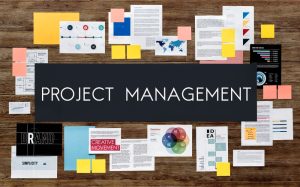Modern organizations run on structured project execution and strong leadership. Whether you're launching a new product, managing an expansion, or implementing digital transformation, you need people who can plan, guide, and deliver on time. This is … [Read more...] about Project Leader vs. Project Manager: What’s the Difference in 2025?
project planning
Key Competencies of Project Manager (Updated for 2025)
Project management is the structured approach of planning, executing, monitoring, and completing a project within the defined scope, budget, and schedule. No matter how perfect a project plan looks on paper, real-world challenges — delays, … [Read more...] about Key Competencies of Project Manager (Updated for 2025)
Things to Know About End-to-End Project Management
Every successful project needs a clear structure, skilled people, and well-defined goals — but what truly ties it all together is end-to-end project management. From the first idea to the final delivery, it ensures every step stays aligned with time, … [Read more...] about Things to Know About End-to-End Project Management


